The “patron saint” of Japanese quality control, ironically, is an American named W. Edwards Deming, who was virtually unknown in his own country until his ideas of quality control began to make such a big impact on Japanese companies.
AKIO MORITAIf you go through life convinced that your way is always best, all the new ideas in the world will pass you by.
More Akio Morita Quotes
-





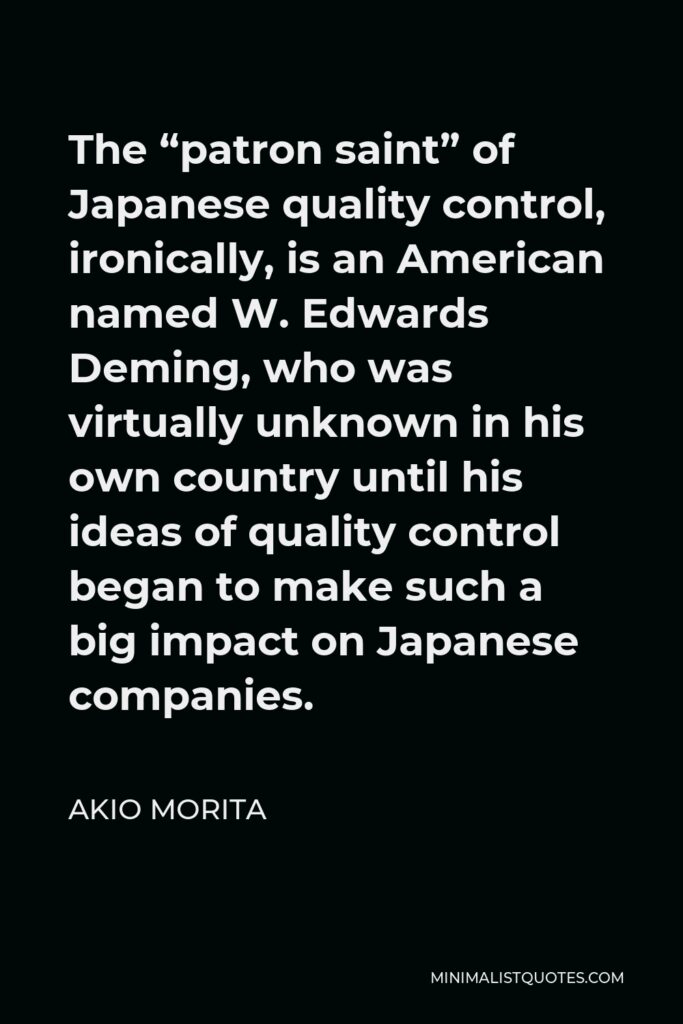

-







If we do our best and make efforts, a peaceful and great future will become ours without fail.
AKIO MORITA -





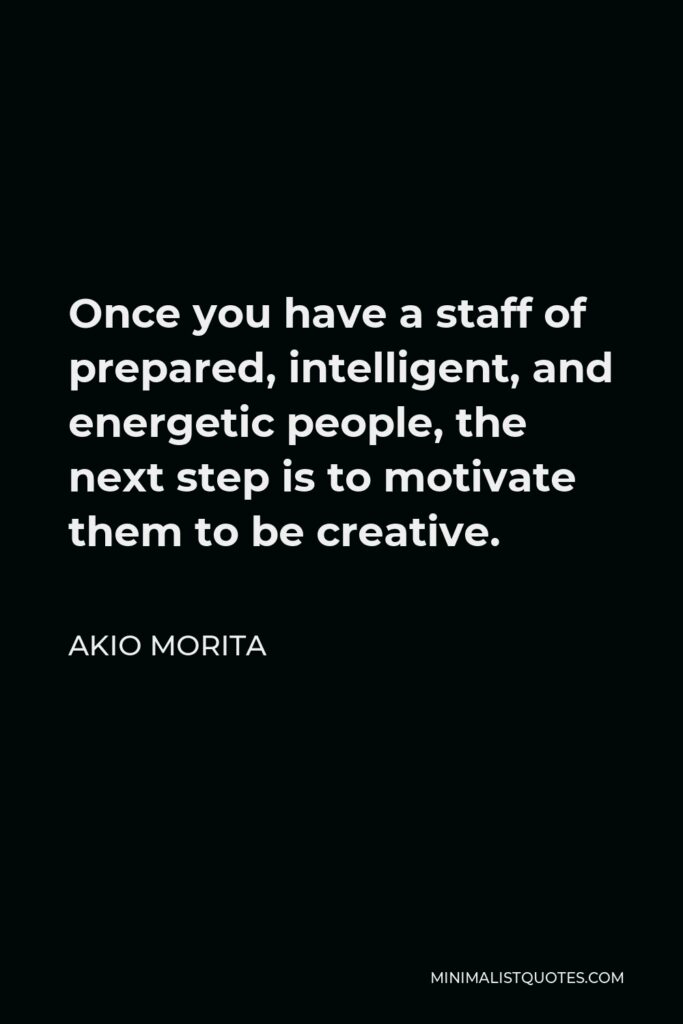

Once you have a staff of prepared, intelligent, and energetic people, the next step is to motivate them to be creative.
AKIO MORITA -





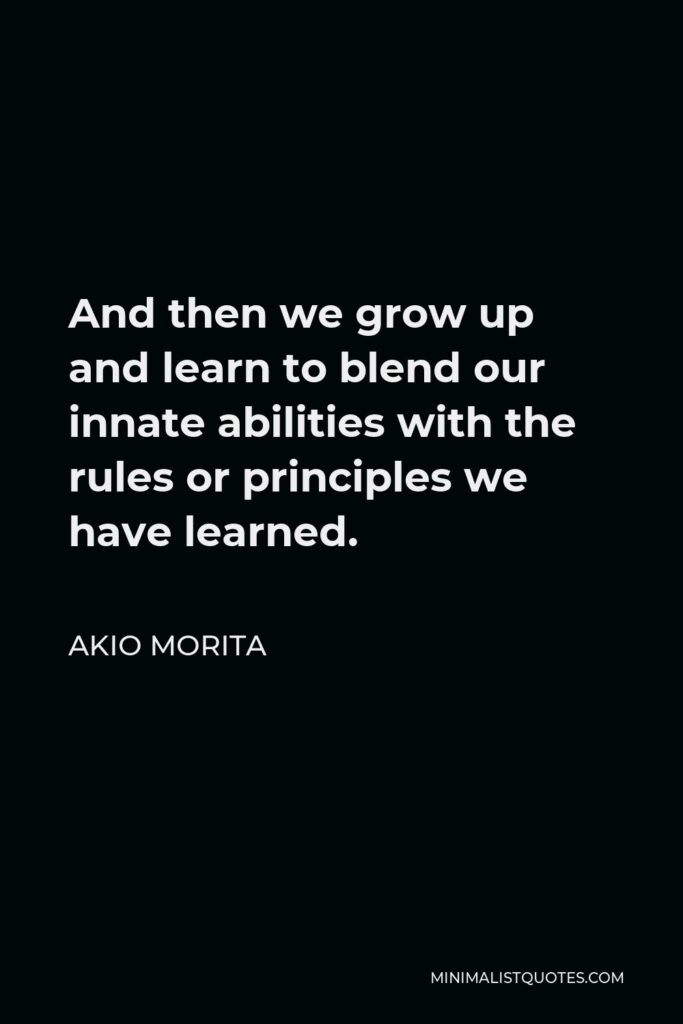

And then we grow up and learn to blend our innate abilities with the rules or principles we have learned.
AKIO MORITA -







More people are interested in trying to shuffle paper assets around than building lasting assets by producing real goods.
AKIO MORITA -





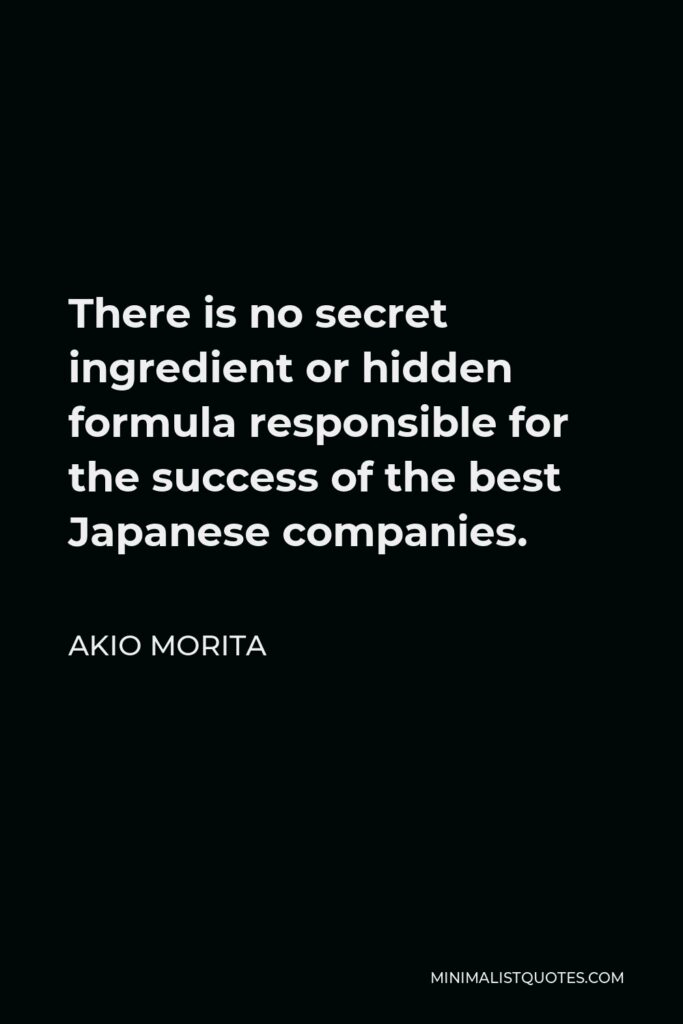

There is no secret ingredient or hidden formula responsible for the success of the best Japanese companies.
AKIO MORITA -





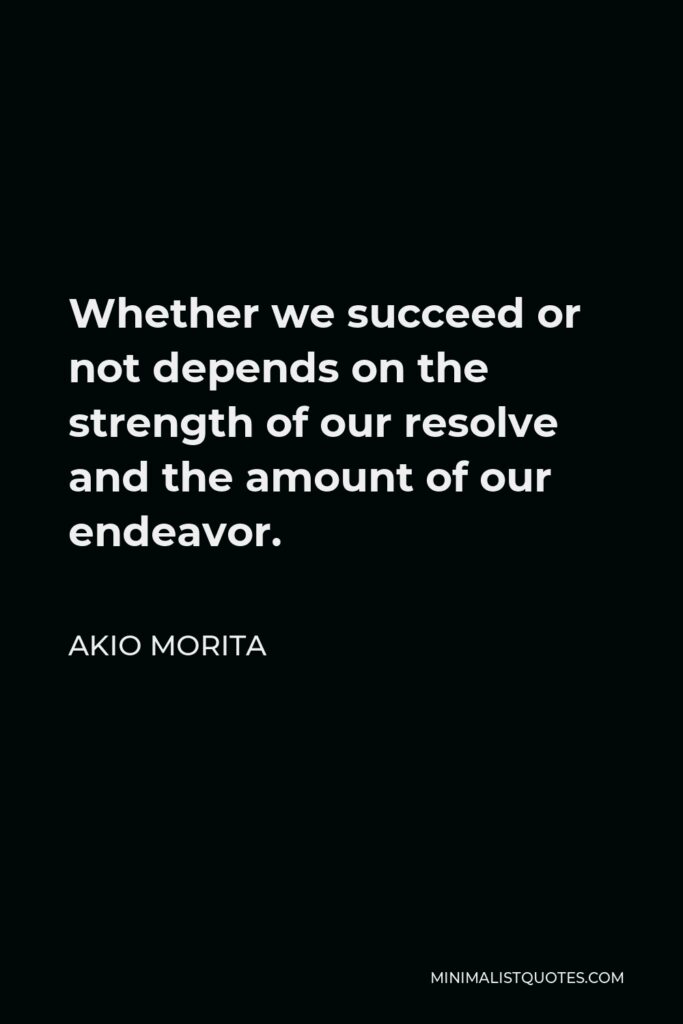

Whether we succeed or not depends on the strength of our resolve and the amount of our endeavor.
AKIO MORITA -







I believe it is a big mistake to think that money is the only way to compensate a person for his work.
AKIO MORITA -





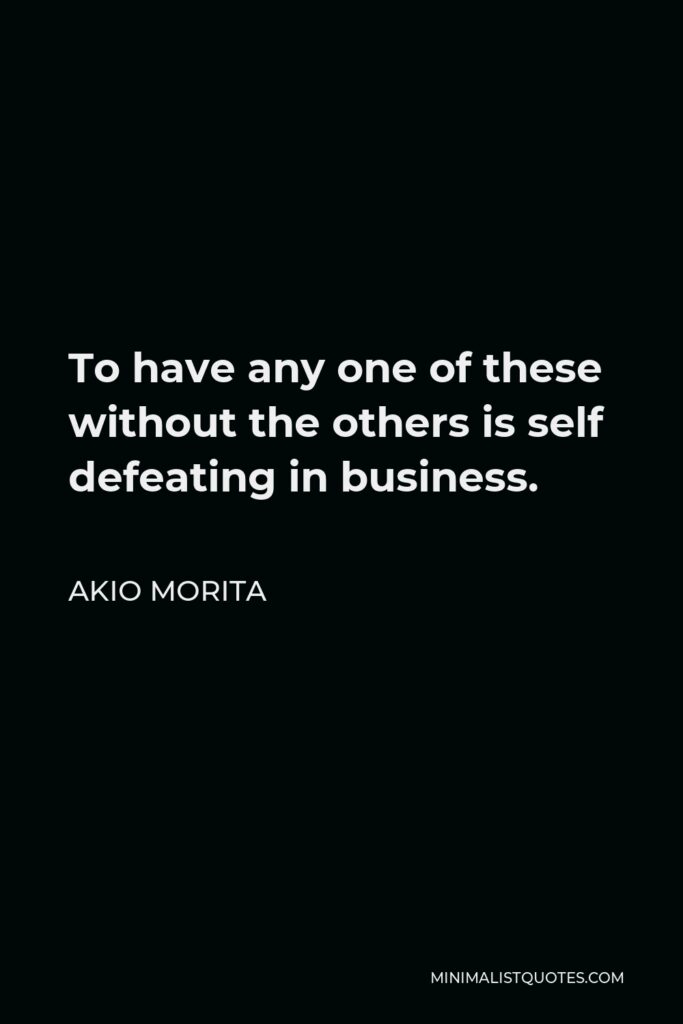

To have any one of these without the others is self defeating in business.
AKIO MORITA -







We don’t believe in market research for a new product unknown to the public. So we never do any.
AKIO MORITA -





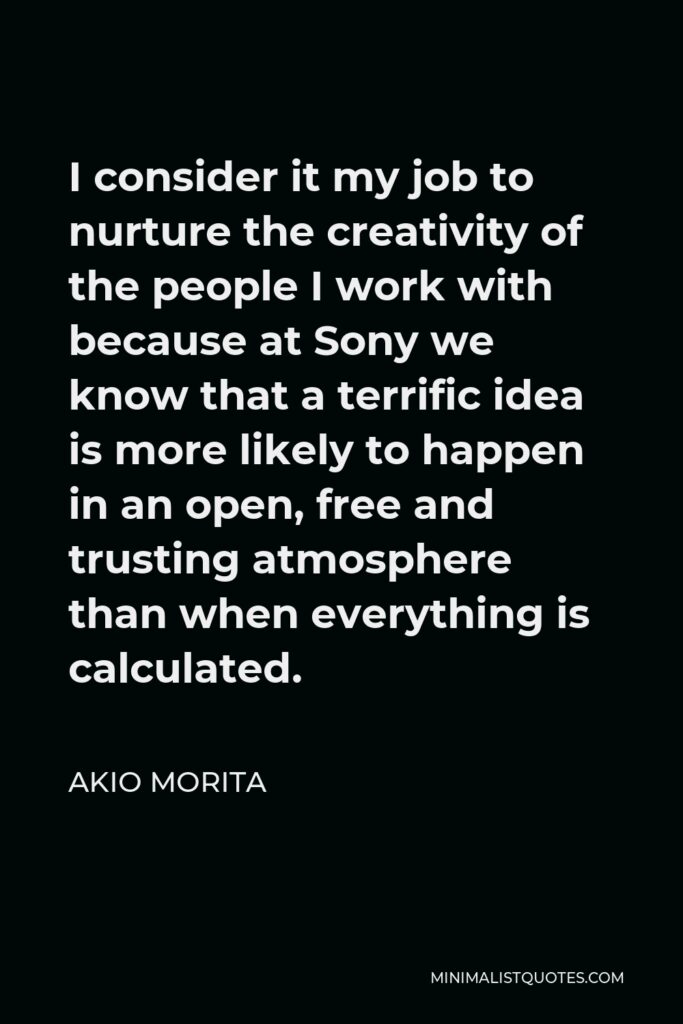

I consider it my job to nurture the creativity of the people I work with because at Sony we know that a terrific idea is more likely to happen in an open, free and trusting atmosphere than when everything is calculated.
AKIO MORITA -





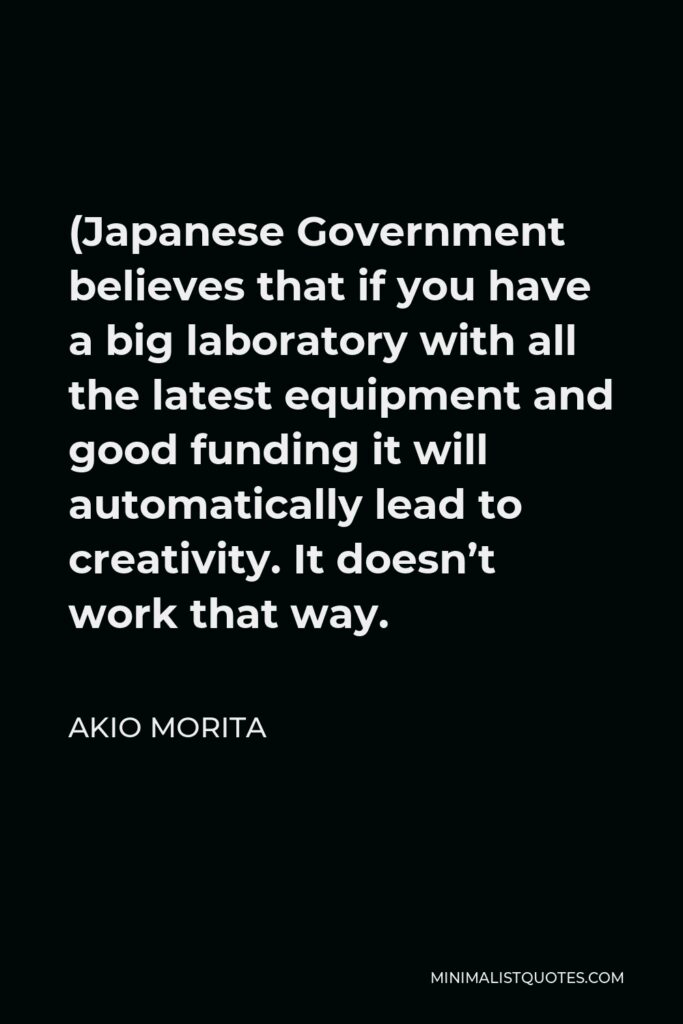

(Japanese Government believes that if you have a big laboratory with all the latest equipment and good funding it will automatically lead to creativity. It doesn’t work that way.
AKIO MORITA -







Advertising and promotion alone will not sustain a bad product or a product that is not right for the times.
AKIO MORITA -





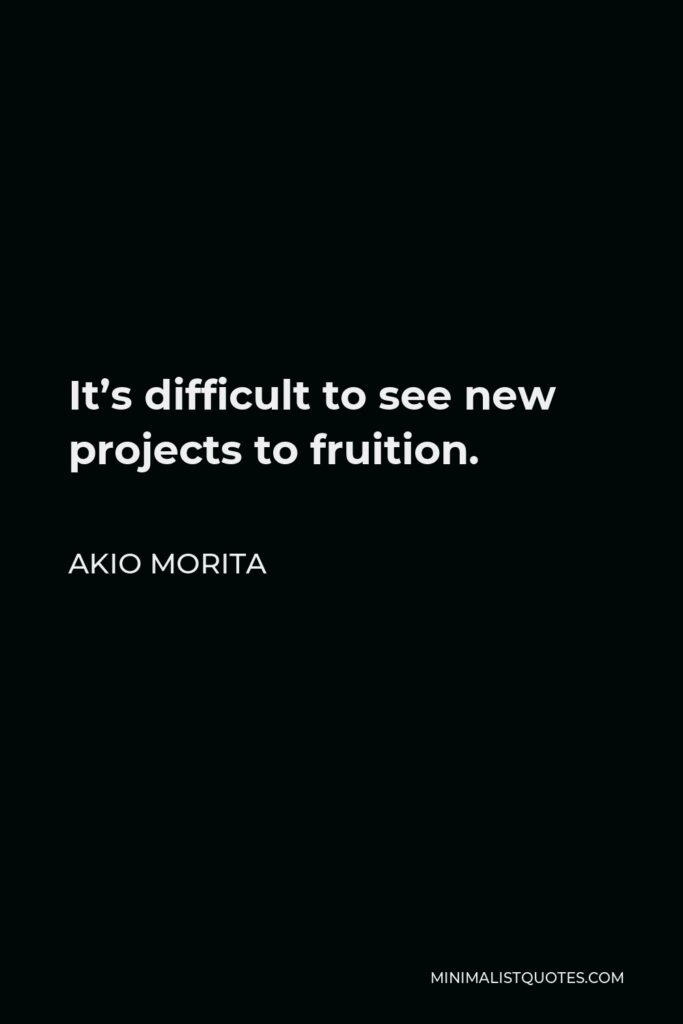

It’s difficult to see new projects to fruition.
AKIO MORITA -





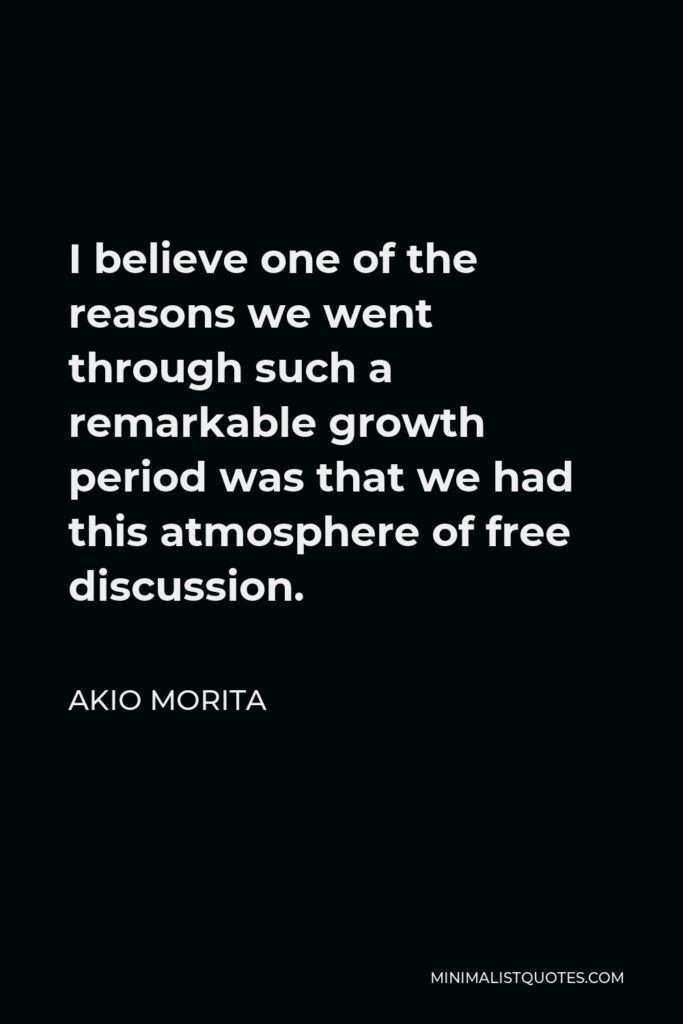

I believe one of the reasons we went through such a remarkable growth period was that we had this atmosphere of free discussion.
AKIO MORITA -





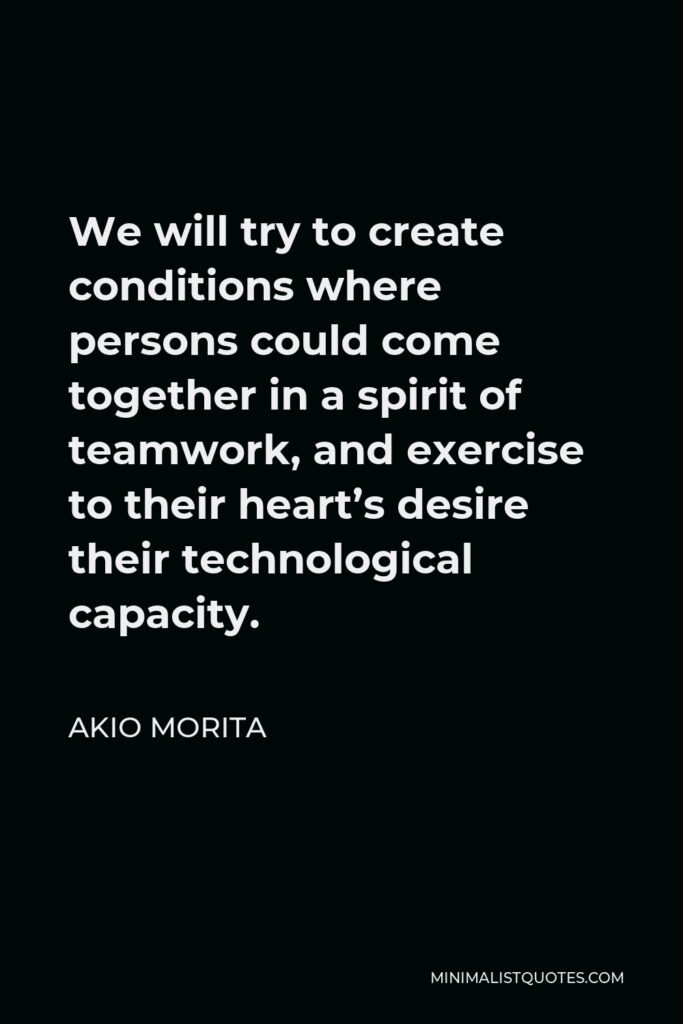

We will try to create conditions where persons could come together in a spirit of teamwork, and exercise to their heart’s desire their technological capacity.
AKIO MORITA







